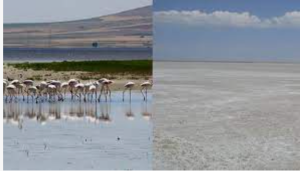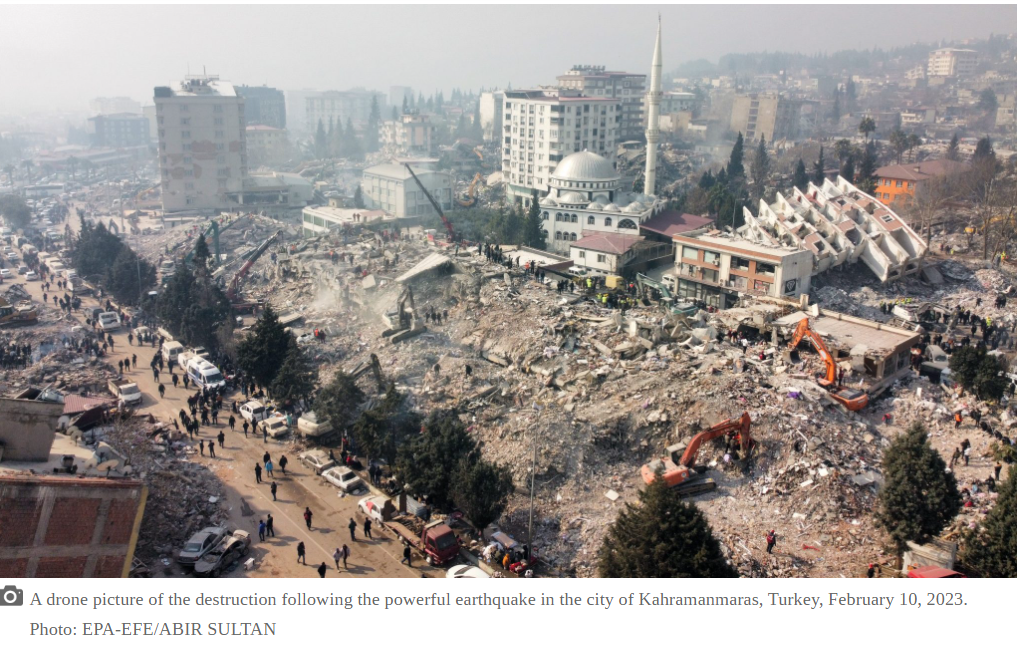World Bank recently expended its loan facility to Turkey by $17 bn to $38 bn over the next five years, to help the government deal with quake recovery, which in the Bank’s estimate caused $100 bn physical damage. Now, Bank’s Turkey Director, Humberto Lopez, has said the estimated cost of making Turkish housing stock safe from future earthquakes is $500 bn. He adds that the country needs an additional $6500 bn to mitigate the impact of global warming, which has already caused frequent droughts. One-third of Turkey’s lakes are estimated to have evaporated.
To put things in perspective, Turkey will have an annual GDP of ca $1.000 at end-2024, while her foreign debt is in excess of $400 bn. Turkish financial markets are very shallow, because of a low savings propensity and the custom of investing into immobile assets. She has a credit rating several notches below investment grade, making market-based financing of these needs impossible.
The World Bank’s Turkey Director, Humberto Lopez, has said the estimated cost of making Turkish housing stock safe from future earthquakes is $500 bn, according to Balkan Insights.
“If we wanted to make existing houses in Turkey resilient, the total cost would be $500 bn. We are talking about half-a-trillion dollars, that is, more than 50 per cent of the Gross National Product,” Lopez told a meeting at the Istanbul Stock Exchange, Bloomberg HT reported.
Lopez added that devastating twin earthquakes in February this year cost Turkey about $100 bn, equal to one-eighth of the country’s GDP in 2021.
Turkey lies on a seismically active area and earthquakes regularly shake the country from almost all sides.
The country’s worst-ever quake disaster in February 2023, registering 7.8 and 7.6 on the Richter scale, devastated 11 provinces in south and south-east Turkey, killing at least 55,000 people and leaving millions more homeless.

Survivors, the opposition and experts have claimed that the needs of the quake victims were soon forgotten, and that the amount of humanitarian aid delivered to them was not enough.
Millions of people from the area had to migrate to safer Western provinces and hundreds of thousands of people continue to live outside their houses in tent camps and prefabricated buildings.
Following the earthquake disaster, ahead of this May’s elections, President Recep Tayyip Erdogan pledged to rebuild homes for more than a million people only in a year.
Some 46,000 new homes will be handed to earthquake survivors by the end of 2023, Erdogan announced on November 1.
Lopez, from the World Bank, also said that, in addition to being quake-proof, the country needs another $600 bn to counter the effects of climate change.
“When we look at reducing the cost of climate change, excluding natural disasters, there is a cost of over $600 bn in Turkey; $100 bn for the earthquakes, $500 bn for making existing houses durable, and $500 bn for reducing [the effects of] climate change. So the total cost exceeds $1.000 bn dollars. In this case, the cost is the entire Gross National Product [of Turkey],” he said.
Follow our English language YouTube videos @ REAL TURKEY: https://www.youtube.com/channel/UCKpFJB4GFiNkhmpVZQ_d9Rg
And content at Twitter: @AtillaEng
Facebook: Real Turkey Channel: https://www.facebook.com/realturkeychannel/
